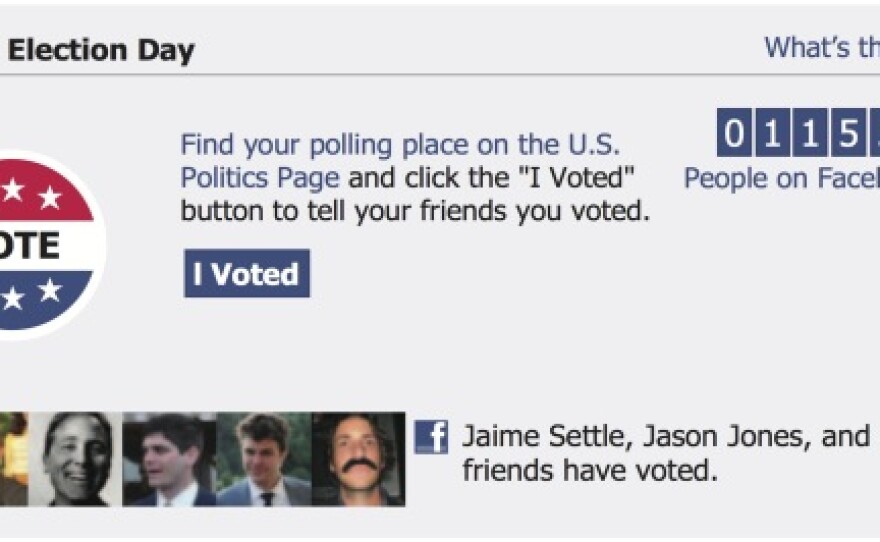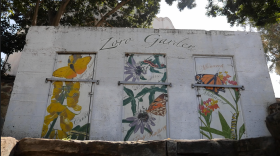Facebook users who saw a message on their account that close friends had voted in the 2010 general election were more likely to turn out to a polling place themselves, according to a study released today by UC San Diego.
The report, published in the journal Nature, randomly posted a message in the news feeds of more than 60 million Facebook users on election day.
The message showed people pictures of their friends who had voted. It also included a running tally of the number of people on Facebook who said they voted, information on where to find your polling place and a clickable "I Voted'' button.
About 600,000 users received the same message but without pictures of their friends, and another estimated 600,000 users received no message at all.
James Fowler, a professor of political science in the UC San Diego Division of Social Sciences and of medical genetics in the School of Medicine, led the study. He said it shows use of social media convinced about 340,000 people to vote who otherwise wouldn't have.
Fowler breaks that 340,000 down into direct and indirect social influence.
An estimated 60,000 people who saw the voting message from their friends then decided to vote, when they otherwise would not have, he said.
"More importantly, we found that the friends of people who received these messages were more likely to vote than the friends of people who saw no messages at all," he said.
Fowler estimates that indirect friend influence caused an additional 280,000 people to vote.
"This is just extraordinary because what this means is the indirect effect was actually much larger than the direct effect," he said. "For every one person the message got to the polls, it got four of their friends to the polls.”
Fowler began the study after meeting Cameron Marlow, a data scientist at Facebook, during a conference. The two men decided to form a collaboration to conduct Fowler's study.
Using public voting records to see whether Facebook users who clicked the "I Voted" button actually voted, Fowler found that many who said they voted on Facebook did not actually appear at the polls.
"We developed this technique where we could use names and birthdays in the voting records and names and birthdays on Facebook to do a matching process that allowed us to see whether or not people who were voting on Facebook were actually voting in real life," he said.
Fowler stressed that the method kept Facebook from knowing which people actually voted.
This new report follows Fowler's previous studies on how social behavior can spread like an epidemic through networks of friends—he’s also the author of a study that found your friends can make you fat.
In this study, people who saw an “I Voted” message without pictures of their friends were not as likely to vote, he said, suggesting the importance of social influence. He added that your close friends have a far bigger influence on your behavior.
“The 10 closest friends on Facebook, the ones you’re most likely to have a face-to-face relationship with, drove the whole effect," he said. "And what this means is that yes it’s true that online networks affect real world behavior. But the way they do it is by stimulating the real world networks we’ve always had before Facebook existed.”
The researchers said they did not find any evidence of differences in effects among self-described liberals and conservatives.








